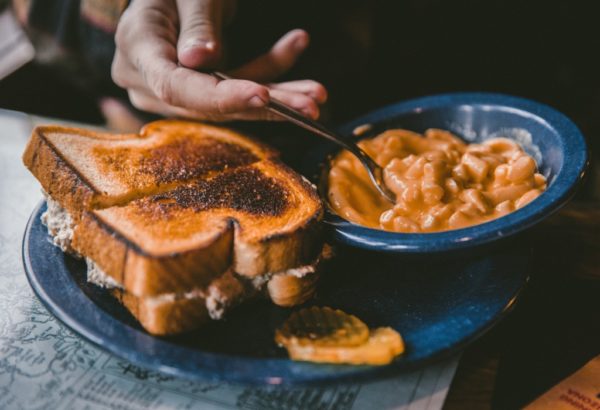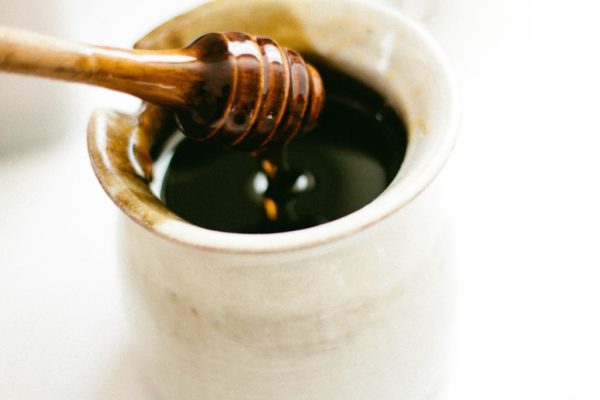Artificial sweeteners are ubiquitous in our food system. Food manufacturers add them to sodas, energy and sports drinks, protein powders, health bars, yogurt, gum, candy, and pharmaceuticals (including syrups and antibiotics for children). Artificial sweeteners are the food industry’s way of harmonizing our cravings for sweet things with our concern for calories. The appeal is that we can enjoy sweet food without the weight gain and deleterious spikes in blood sugar. Seems like a win-win, right? Not so fast. Despite FDA approval, these non-nutritive sweeteners pose a threat in terms of weight gain, food cravings, gut health, and more.
Artificial sweeteners include Sucralose (Splenda), Aspartame (Equal, Nutrasweet), and Saccharin (Sweet’n Low). Ironically, they contribute to the same weight, obesity, and diabetes epidemic that they are advertised to provide a solution for!
Artificial sweeteners make you crave – and eat – more food.
The majority of taste buds on a human tongue are there to sense sweetness. When we eat something sweet, nerves from the tongue send messages to the reward centers in the brain, urging us to eat MORE of the sweet stuff. Historically, this served a purpose. In our hunter-gatherer days, food wasn’t easy to come by. Whenever we came across high-calorie sweet foods, our brains prompted our bodies to eat more! This was awesome in terms of not starving to death; less awesome when it comes to overabundant, hyper-sweet chemicals.
The problem is we’re taking our ancient bodies into modern food society, and this creates a health – and weight – disaster.
When we consume artificial sweeteners, they send pleasure signals to the brain. BUT when the sugar never arrives in the bloodstream, your brain feels duped! It sends you back for more sweet food. In this way, artificial sweeteners replicate the same cravings and addictive behavior that sugar does.

Your body still receives calories when you eat artificial sweeteners, despite the fact that they’re calorie free.
The reason artificial sweeteners don’t contain calories is because they are not digested by the body. Translation: these things aren’t food. Even still, they must pass through the digestive tract, eventually making their way to the gut. Once in the gut, artificial sweeteners can cause the bacteria residing there to produce more metabolites. These products are absorbed by the colon, PROVIDING CALORIES to the body! Yep, the bacteria living in your gut can harvest calories when it senses sweet – even without actual sugar!
Emeran Mayer, MD, author of The Mind-Gut Connection, says:
“Cutting calories by consuming artificial sweeteners doesn’t work because your gut is able to extract proportionally more calories from the food you eat”.
In other words? You can’t outsmart your body – or your gut bugs!
Drinking diet soda and consuming artificial sweeteners is linked to an increase in caloric intake, BMI, and weight circumference – in both adults and children.
Artificial sugars wreak havoc on gut health.
Back to those gut bugs. Our large intestine houses trillions of bacteria that do everything from digest food and modulate metabolism to regulate the immune system and influence mental health.
Consuming artificial sweeteners can kill off good bacteria while allowing pathogenic bacteria to flourish. Since your microbiome influences basically EVERYTHING about your health and wellbeing, this is bad. Very bad.
Artificial sweeteners not only interrupt the signaling of your appetite control center, reinforcing the EAT MORE messages outlined above, they can also sway the gut microbes in the direction of certain species that promote obesity!
Artificial sweeteners can elicit an insulin response the same way that sugar can.
Just like our tongue, our gut contains sensors for sweet foods. When you eat sweet foods, whether they contain sugar or artificial sweeteners, they stimulate the absorption of glucose into the bloodstream and the release of insulin from the pancreas.
It’s also worth noting here that artificial sweeteners should NOT continue to be marketed toward diabetics. Our gut plays a critical role in modulating diabetes. Artificial sweeteners can alter the gut bacteria in unfavorable ways, so their consumption puts people at increased risk of metabolic diseases like Type 2 Diabetes. Due to this insulin spike, diabetic issues can actually worsen.

So what should you eat instead?
The food and diet industry, and as a result the American consumer (that’s you and me), have been trying to outsmart Mother Nature without any success. We are fatter and sicker than we were before the dawn of processed and artificial foods.
Since artificial sweeteners make their way into many, many food products, it’s important to check ingredient labels of all packaged foods you buy for yourself and your family. Avoid these additives 100% of the time. If you’re interested in learning more about switching to a real food diet, check out my Fueled+Fit nutrition program.
We are far better off sticking to naturally sweet whole foods like in-season fruits and root veggies. If you’re looking to add sweetener to your food, go for the whole food sources:
- Raw, local honey
- Real maple syrup (as in, not Aunt Jemima)
- Dates (medjools are my favorite)
- Coconut sugar
Read here for my thoughts on agave nectar/syrup, and why I think people should avoid it.
What about stevia?
While stevia doesn’t have as many health concerns as chemically-produced artificial sweeteners, it’s still not perfect. Stevia comes from a naturally sweet leaf (unaltered stevia is a green powder – not a white powder, not a liquid extract), but our food industry has of course altered it: most store-bought stevia is heavily processed with additives.
Also remember that ANY sweet taste stimulates an insulin response and makes you want more; this includes stevia. Stevia triggers hypoglycemia in some individuals, and these people should always avoid it.
I like the way Robb Wolf (author of Wired To Eat) phrases it: avoid sweeteners – including stevia – until you are at a point where you are happy with how you look, feel, and perform.










